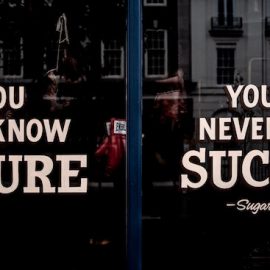

This article is an excerpt from the Shortform book guide to "What Color Is Your Parachute?" by Richard N. Bolles. Shortform has the world's best summaries and analyses of books you should be reading.
Like this article? Sign up for a free trial here .
What are the job market trends you need to know? How have changes in the job market impacted the way people can and should find jobs?
Since 2008, changes in the job market have been seen as a result of the recession. Job market trends are important to know so you can strategize for your own job hunt.
Keep reading to better understand how the job market and job market trends since 2008.
Job Market Trends Since 2008
Since the last major recession in 2008, the job-hunt has changed and the pre-recession job-hunting strategies many of us are familiar with are no longer effective. Here are some of the changes in the job market since 2008:
- Jobs take longer to find. From 1994 to 2008, only 10% of job-hunters took more than a year to find work. Since 2008, 17-30% of job-hunters take more than a year.
- Jobs don’t last as long. Since 2008, more jobs have been temporary, contract, or part-time. There are advantages to these types of jobs for employers—employers only need to pay people for the exact amount of time that they’re needed, and they don’t have to pay benefits or vacation.
- Job-hunting is a constant. Since jobs don’t last as long, we have to hunt for new ones more frequently.
- Jobs increasingly involve new technology. Technology advances every day, and while it’s not going to replace everyone, everyone’s going to have to learn to work with machines according to job market trends. While technology could reduce 5-19% of current jobs, technology will also create new jobs.
- Job postings are increasingly digital. These days, there are several online types of job boards, including generalized ones that post jobs in any industry, to age-, industry-, or company-specific boards. Jobs are also posted on social media.
- Job-hunters must now cater to employers’ preferred hiring processes. When times are good, as they were before 2008, employees are in demand. As a result, employers cater to job-hunters’ preferences—for example, they post jobs widely and publicly and read resumes closely. When times are bad, however, employers don’t have to put in the same amount of effort to find workers—there are more people than jobs. As a result, employers fill positions using their preferred methods, such as hiring from within the company or hiring friends of their existing employees. Employers and job-hunters approach an open position in almost exactly opposite ways, so if times are bad and you’re not prioritizing employers’ preferences, you’re unlikely to find a job. Here are some specifics on the differences between how employers and job-hunters approach an open position:
- Employers approach hiring as an elimination game—they winnow down the applicants first and then select someone from a group of finalists. Job-hunters would prefer a non-elimination-style process.
- Employers want job-hunters to find them. Job-hunters want to be found by employers.
- Employers want to know everything about a job-hunter, while a job-hunter would prefer to share only what’s on her resume.
- Employers don’t want to confirm receipt of applications because they’re busy, while job-hunters wish they would.
- Employers don’t want to increase hiring until they need people. (And employers aren’t necessarily motivated by government hiring incentives because these incentives have a time limit.) Job-hunters would prefer employers to always increase hiring.
What Hasn’t Changed Since 2008
After reading the above, you might be thinking that the job market trends aren’t looking good. However, there are two elements of the job market that haven’t changed and will probably never change:
1. There are still plenty of jobs available. You might feel like few jobs exist because of what you hear in the media or because you haven’t been able to get hired. However, the media tends to exaggerate the negative job market trends, and the fact that you haven’t got a job probably has more to do with your approach (which you can change) than any universal job shortage.
- For example, consider the two reports on job market trends the US Bureau of Labor Statistics puts out every month. One of the reports gives the number of new jobs created, and the other gives the number of existing jobs that are unfilled. While the media will focus on the number of new jobs created, which is always less than the number of people who want jobs, new jobs don’t represent overall availability. When you look at both numbers together, you’ll see that there are plenty of jobs out there.
2. The fundamental goal of the job hunt is to figure out if the job-hunter and employer are compatible. Think of a job hunt like dating instead of marketing. As job-hunters, we tend to be overly concerned about whether an employee likes us, but it’s just as important that we consider if we like them. If we don’t, and we take a job with them anyway, we’re eventually going to “lose” the job by quitting later because we’re unhappy.

———End of Preview———
Like what you just read? Read the rest of the world's best book summary and analysis of Richard N. Bolles's "What Color Is Your Parachute?" at Shortform .
Here's what you'll find in our full What Color Is Your Parachute? summary :
- How to not just find a job, but find a job you love
- Why traditional resumes don’t find you the right job
- The 7 steps to identifying your ideal career






